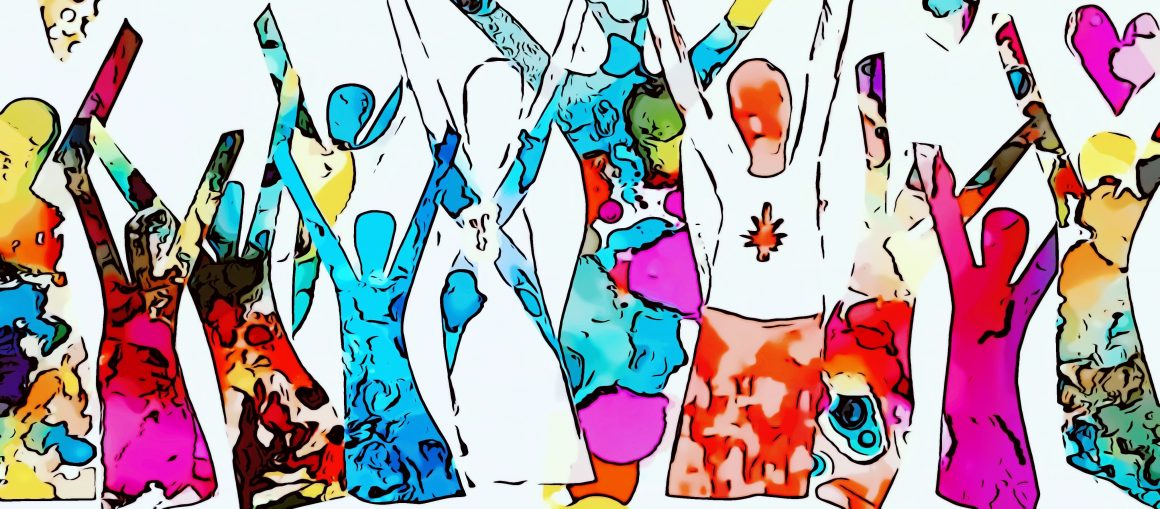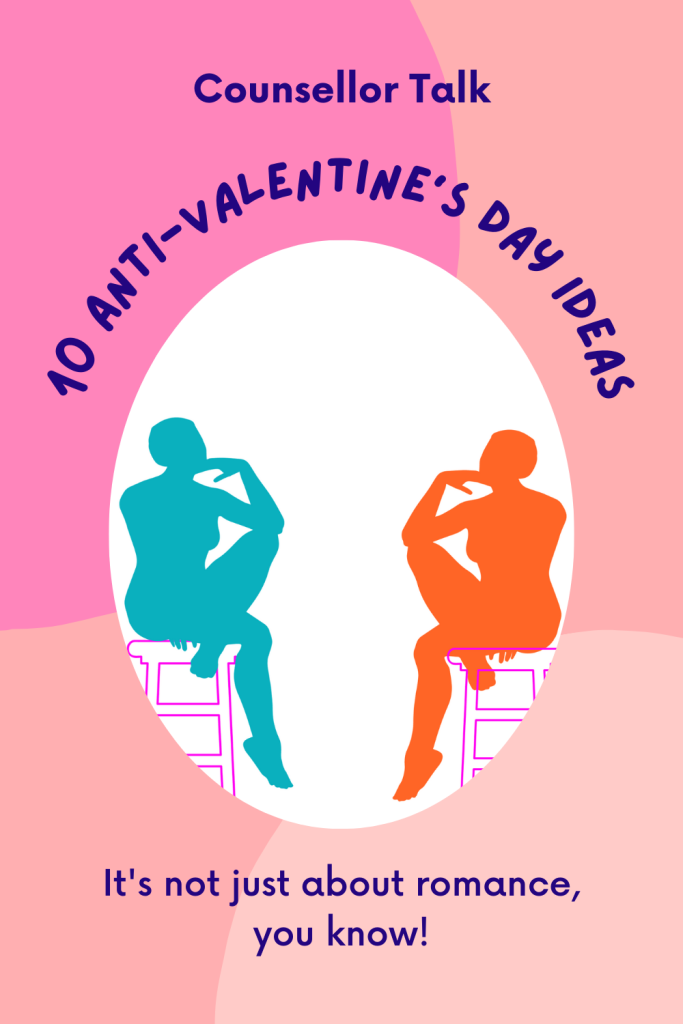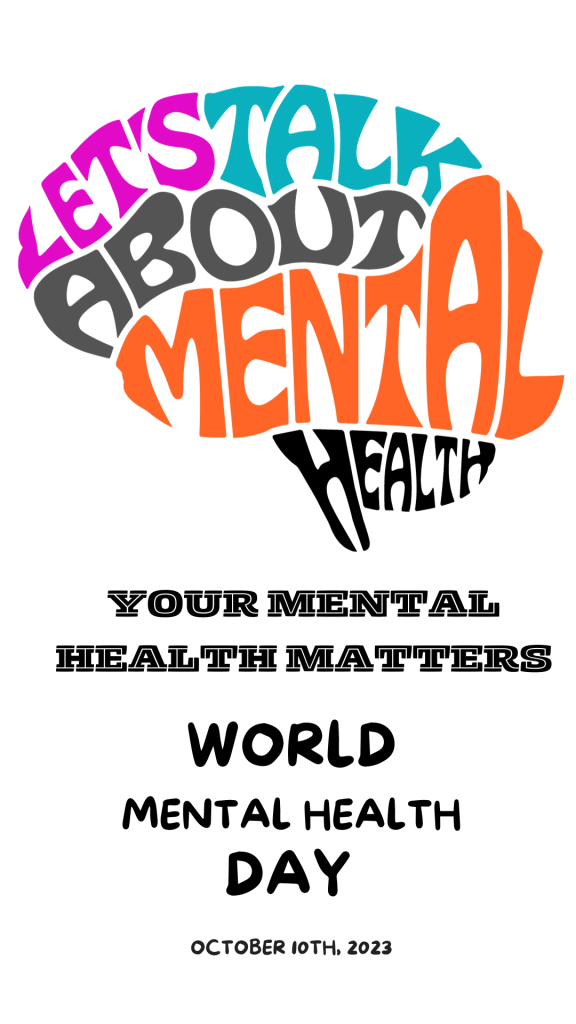In life, we often encounter ups and downs that can challenge our mental fortitude. It is during these times that our mental strength comes into play. The ability to navigate through life’s challenges, bounce back… More
Who Doesn’t Need A Counselling Skills Toolbox?
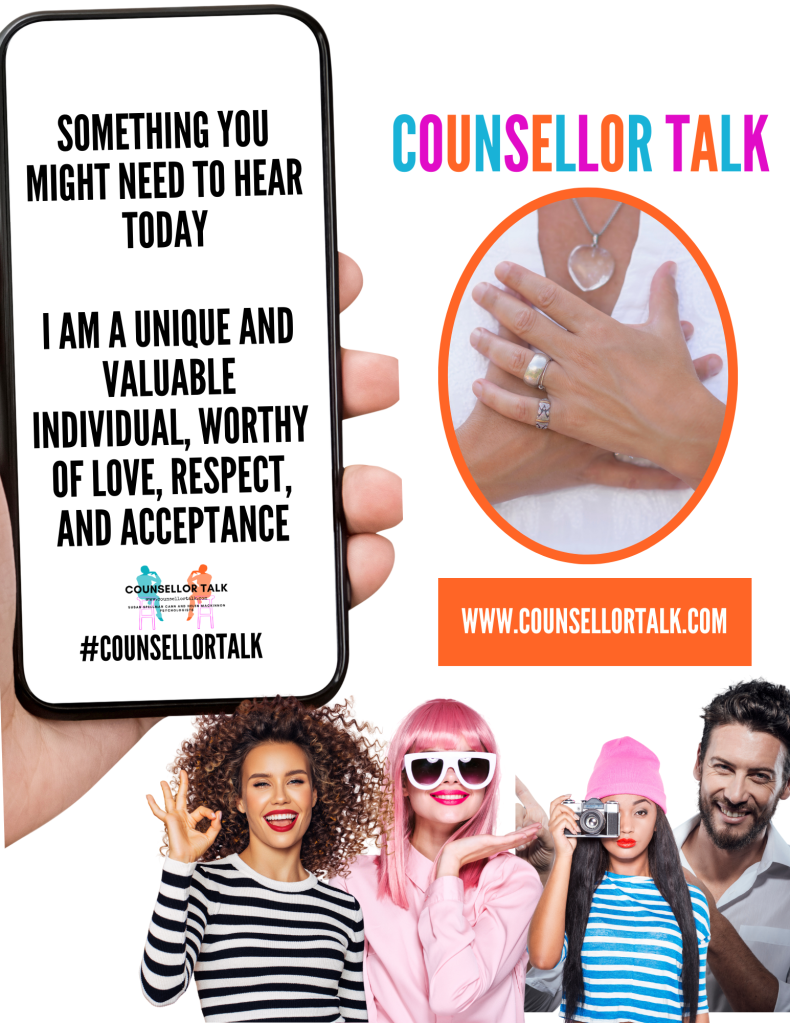
We all have our unique paths to walk, and sometimes, we could use a little help. That’s where Counsellor Talk can step in, providing the tools to navigate your emotions and experiences and help you to understand yourself better.
Being open to counselling as a way to transform your life is a good idea and we have loved helping those that have crossed our paths over the years.
Counsellor Talk Is written with counsellors in mind. However, teachers and those working with youth or adults can utilize the ideas too. Several handouts will work with people at every age level. There is no shortage of ideas to get those counselling ideas flowing to help others.
Who doesn’t need a counselling skills toolbox? A few ideas you can put in your toolbox are:
Just for Today
Start each day in a positive way. Accept yourself exactly as you are, knowing that you are enough.
When we celebrate our shared humanity and think of ways to help not only ourselves but find ways to help others and make the world a better place, we heal. All of us can do anything just for today.
Life is Better When…
We focus on gratitude rather than grievances. We treat ourselves with the same compassion and care that we give to others. So let go, embrace your flaws, and listen to the whispers of our intuition guiding you on your journey.
Challenge Yourself to…
Be more, do more, live more. Try something new, and learn to play more. Remember, by focusing on your strengths, you gain personal power. By reframing your thoughts, your worldview can change. By listening with an open mind and an open heart, you learn more.
Something You Might Need to Hear Today
You matter. You are a unique and valuable individual, worthy of love, respect, and acceptance. Like a butterfly emerging from its cocoon, you are continuously evolving and adapting to change.
Something I Need to Understand
Feelings aren’t facts. They are neither right nor wrong; they just are. Self-awareness is the first step towards personal growth. Exploring your thoughts, feelings, and behaviors can help you better understand yourself and your needs. Challenging negative thought patterns and cultivating positive affirmations can lead to a more positive outlook on life.
Remember, you are meant to be here; you have a purpose.
Well-being Tip
Treat yourself right; it’s time for a spa day so go ahead and take one. An economical version, relax in a bubble bath and let your worries unwind. Make time to have friends over for dinner. Enjoy the moments, make memories, and bring more joy into your day.
Rediscover simple pleasures and leave your phone behind. Find solace in simplicity; it’s your special place.
Final Thoughts
If you don’t like your story, rewrite a new chapter. Create the life you desire. Strive to thrive rather than just survive and shower yourself with self-love.
As Ronna Jevne says, “Hope is the small voice in our heart that says yes to life.” As your journey continues, remember, that you are not alone. Counsellor Talk, hopes you connect and collaborate with others every step of the way.
For more insights and tips, you can check out our book.
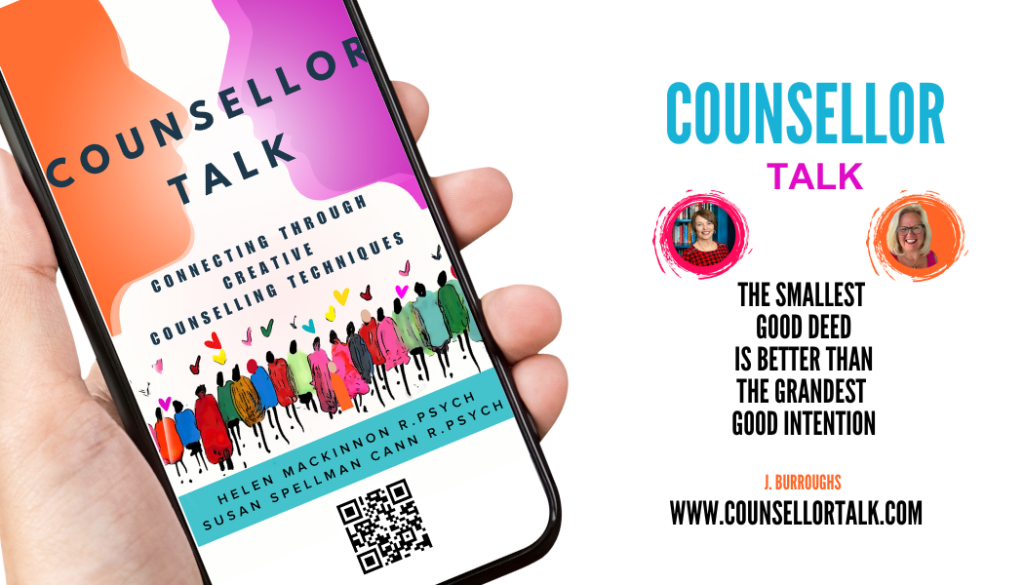
Counsellor Talk : Connecting Through Creative Counselling Techniques

It has been a process, to say the least in creating this book, but we are so happy it is here. So much learning as we did not hire anyone to help us. We look forward to sharing Counsellor Talk with you and are so grateful for all the input from others.
We believe our book is real and relatable, and we hope it will be truly inspiring. We invite you to explore a multitude of ideas that we hope will get your creative juices flowing.
Get ready to embark on a journey where we will share several tips, tools, and techniques to empower you in finding your path, and discovering what works best for you and your clients.
As psychologists, we understand the power of connection. The therapeutic alliance is the foundation upon which healing is built, the glue that binds us together in our shared humanity. In “Counsellor Talk,” we’re offering you the tools to deepen those connections, breathe new life into your practice, and embark on a journey where healing isn’t just a destination. You will use many of the ideas as jumping-off points to meet the needs of your particular clientele.
So, grab your favorite mug, brew a cup of your preferred beverage, (we prefer a cup of calming tea), and settle in. Let’s explore together, heart to heart. We hope you will rediscover the magic of counselling, not as a clinical exercise, but as an art— a place where ideas flow to meet the needs of those entrusted to your care.
Throughout “Counsellor Talk,” you’ll find practical tips, creative exercises, handouts, and ways to integrate technology into your practice. From mindfulness techniques to expressive tools via the arts, from narrative therapy to using technological tools —we’re here to help you expand your toolkit, inspire you to think outside the box and embolden you to make a real difference in the lives of those you serve.
“Counsellor Talk” isn’t just about the nuts and bolts of counselling—it’s about the heart and soul behind the practice. It’s about rediscovering the joy in your work and rekindling the passion for helping others which is the first thing that drew you to this field.
What inspired us to write “Counsellor Talk” was you—the counsellors, the school counsellors, the therapists, and the healers who devote their lives to helping others. This book has been over 30 years in the making, but life got in the way. So here we are finally sharing some of our ideas and inspiration with you by never giving up our goal and publishing our first book. The journey continues as we go on the road to support you with in-depth workshops based on our book Counsellor Talk.
As two psychologists with over 60 years of combined counselling experience, we wish to inspire the next generation of counsellors as well as rejuvenate those seasoned professionals.
In writing this book we hope to pass on our passion and love of counselling. It has been the best part of our professional lives.
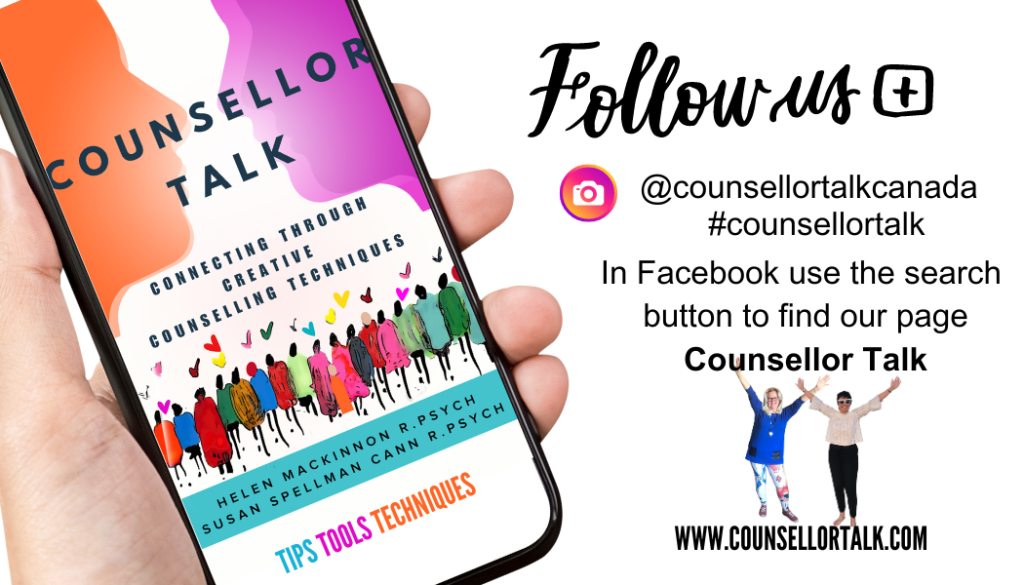
Create An Intentional Ripple: The Smallest Good Deeds Matter
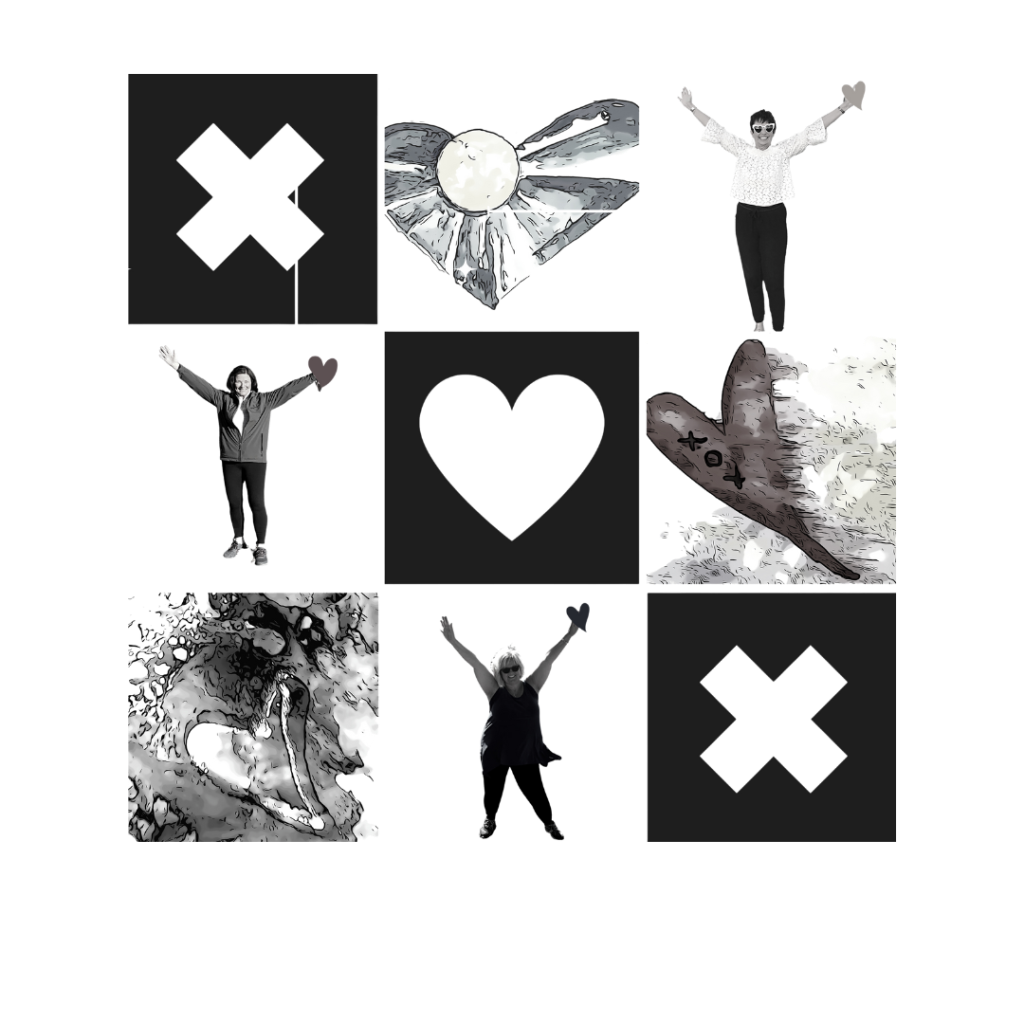
As Valentine’s Day approaches we often ramp up our intentional thoughts to gift someone we love something special. I want to point out one of my all-time favourite quotes,
The Smallest Good Deed Is Better Than The Grandest Good Intention
J Burroughs
I’ve discovered that the most memorable moments are often born from the tiniest acts of kindness and I try my hardest to do them as often as I can not just on Valentine’s Day. A simple smile or “thank you” can brighten someone’s day, and a small favor can create a ripple effect of positivity.
One instance of a small gesture that stands out for me is when a student told me I had saved her life. I did not know the student, but she said I smiled at her every day in the hallway, and if not for that she was thinking about ending her life. The gesture was small, but the impact was immeasurable and I have never forgotten the moment she shared her story with me. It made me look at myself and what I do. As a result, I try as often as I can to do one small thing that I hope makes a difference for another human being.
Waiting for the perfect moment to do some grand gesture might never arrive. So start now … start today. Tell someone the difference they make in your life. You can send them a digital reminder.

Here are a few things to keep in mind about relationships that might help you based on John Gottman’s approach:
- The Magic Ratio:
- Dr. Gottman talks about the importance of a 5:1 positive-to-negative interaction ratio. Are you practicing this interaction in all your relationships?
- Emotional Bank Account:
- Think of your connections like a bank account, says Dr. Gottman. Regular deposits of emotional support build strong foundations. When and how often are you making deposits?
- The Four Horsemen:
- Watch out for criticism, contempt, defensiveness, and stonewalling, warns Dr. Gottman. How are you paying attention to these in your relationships?
- Turning Towards Bids:
- Bids for connection are like little invitations to intimacy. Respond positively to these bids. How often are you making these bids?
- The Love Map:
- Dr. Gottman encourages building a detailed “love map” of your partner. Knowing your partner’s world intimately fosters a deep connection. Have you made a love map?
- Repair Attempts:
- In every relationship, hiccups happen. Repair attempts are the remedy. Take time to apologize, make amends, and keep the connection intact. Who do you need to make repairs with today?
- Nurturing Fondness and Admiration:
- Admire your partner’s or friends’ qualities; express fondness, Dr. Gottman advises. It’s like watering a plant; love in all relationships blossoms with care and attention. Who can you express fondness with today?
- Dreams Within Conflict:
- Even conflicts have dreams and aspirations buried within, says Dr. Gottman. Unearth those dreams together for a richer understanding.
- Shared Meaning:
- Relationships thrive on shared rituals and meanings. Create rituals in your life that matter to you and those you love.
- Small Moments, Big Impact:
- I agree with Dr. Gottman, that small moments matter the most. Cherish the everyday connections; they make a difference for you and those you care about. Check out The Small Things Often Podcast.
So go ahead not just in your love relationships, but in your day-to-day connections with people take the time to find ways to do a small good deed. You will be glad you did.
- Leave an extra tip.
- Tell the manager their employee is doing a great job.
- Buy a lotto ticket for someone for no reason.
- Send a message, postcard, or letter telling someone how much you appreciate them.
- Offer to help an elderly person do something.
- Spend more time with those you love.
Live More … Laugh More …Love More … Be More intentional in your small deeds starting today.
10 Anti- Valentines Day Ideas. It’s Not Just About Romance You Know
“The best and most beautiful things in this world cannot be seen or even heard but must be felt with the heart.” – Helen Keller
Valentine’s Day is typically associated with romance and couples. But what about those who prefer to celebrate in an unconventional way or perhaps not all? There’s no rule saying you have to stick to the norm. Here are 10 Anti-Valentine’s Day ideas for you to consider.
1. Self-Love Day
Why not celebrate the most important person in your life – you? Use this day to treat yourself. Have a spa day, go shopping, read a book, or watch your favourite movie. Give yourself the love and attention you deserve. Try leaving positive affirmations on your mirrors or on your fridge. They can be little love notes to yourself.
2. Friends’ Gathering
Who says Valentine’s Day is only for couples? Organize a get-together with your friends. Connect and put away those phones. Play games, have a movie marathon, or just chat and enjoy each other’s company. Call an old friend and reconnect. Friends just make the world a better place. Write a note, postcard, or letter to your friend telling them how they have made a difference in your life.
3. Adventure Day
Do something daring and exciting. Go hiking, go for a walk, discover new places and things, try a new sport, and remember to invite a friend. The adrenaline rush will make it a day to remember.
4. Charity Work
Spread the love by volunteering. Helping others can be a rewarding way to spend the day.
5. Learning Something New
Take a class or workshop in something you’ve always wanted to learn. It could be painting, coding, cooking, or anything that interests you.
6. Pet Love Day
If you have pets, spend time being silly with them or take them for a nice stroll. They provide unconditional love and deserve to be celebrated too.
7.Get Back to Nature Day
Escape the city and spend the day in nature. Go to the mountains or for a long walk in a park or simply enjoy the tranquillity.
8. Workout Day
Hit the gym or go for a walk or run. Physical activity releases endorphins, the feel-good hormone, and will make you feel great.
9. DIY Day
Get creative and make something from scratch. It could be a piece of furniture, a painting, a card, a digital scrapbook or a home decoration.
10. Counsellor Talk
Visit a counsellor or therapist. Discuss your feelings, fears, or anything that’s on your mind. It’s a great way to take care of your mental health.
Remember, whether you’re single or in a relationship, Valentine’s Day is what you make of it. So why not make it a day that celebrates you and the things you love?
Art Affirmations with @sspellmancann
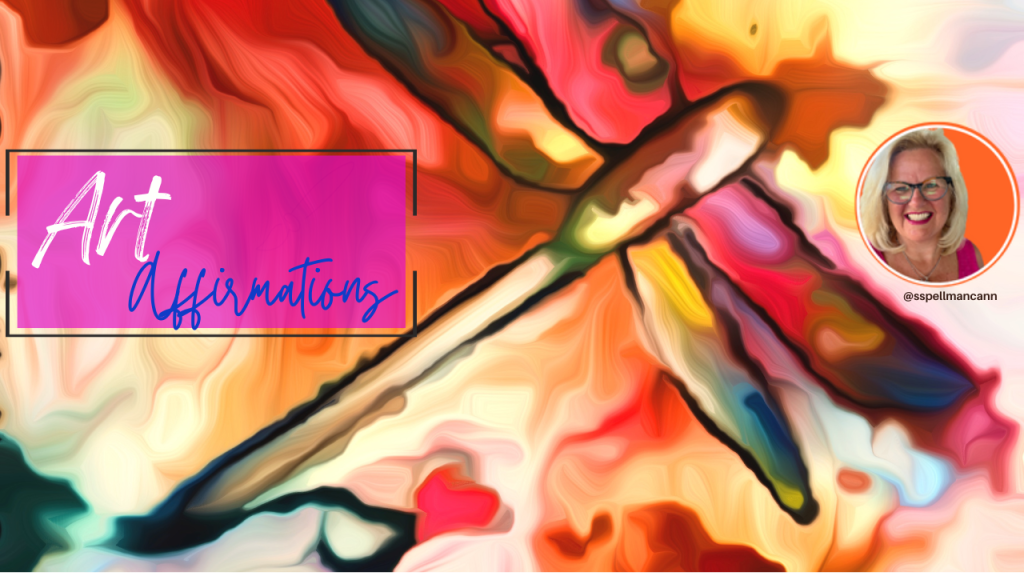
Welcome to a journey of self-expression
Art is a form of self-expression that goes beyond words. It allows us to be who we are, without judgment. It’s ok to be childlike and create from your heart that is what I do. To guide you through this journey, I created a series of affirmations. These affirmations are words of encouragement and inspiration that will help you tap into your inner artist and create freely.
Affirmations to inspire your creative side
- “I will be ok with mistakes, they make marvelous art pieces.”
- “I will use the whole box of crayons and enjoy the moments.”
- “Today, I will create with love and passion.”
- “I will create art with no rules.”
- “I will be childlike and create.”
- “I can visualize what I would like to create.”
- “I will allow art to take me away and go with the flow.”
- “Today, I will forget about my worries and just be.”
- “I can and will play.”
- “I will never underestimate myself, I am worthy and will not compare myself to other artists, I am me.”
- “I will create and let it take me away today.”
- “I will recognize my inner artist and act as if.”
- “I will let art heal me.”
- “I will trust myself and the process and see the artist in me.”
- “I will lift up other creatives.”
- “I’ve got this, I will let go and have fun.”
- “I am created to create.”
- “I recognize that every artist was once an amateur.”
- “I will create, not critique.”
- “I will not give up, I am an artist.”
These powerful affirmations are designed to inspire and motivate you, to embrace your creativity, and to believe in your ability to create. Remember, there are no rules when it comes to art, and mistakes can lead to beautiful pieces. So, use the whole box of crayons and let your imagination run wild.
About the Artist
All art and affirmations in this post are by Susan Spellman Cann (@sspellmancann). Susan is an artist and psychologist who believes in the power of art to heal, inspire, and bring joy. An advocate for self-expression and creativity, Susan encourages others to embrace their inner artist and create freely. Remember, every artist was once an amateur, so don’t give up and keep creating.
How School Counsel(l)ors can use Canva and its AI Capabilities to Make Their Work Even More Impactful and Creative
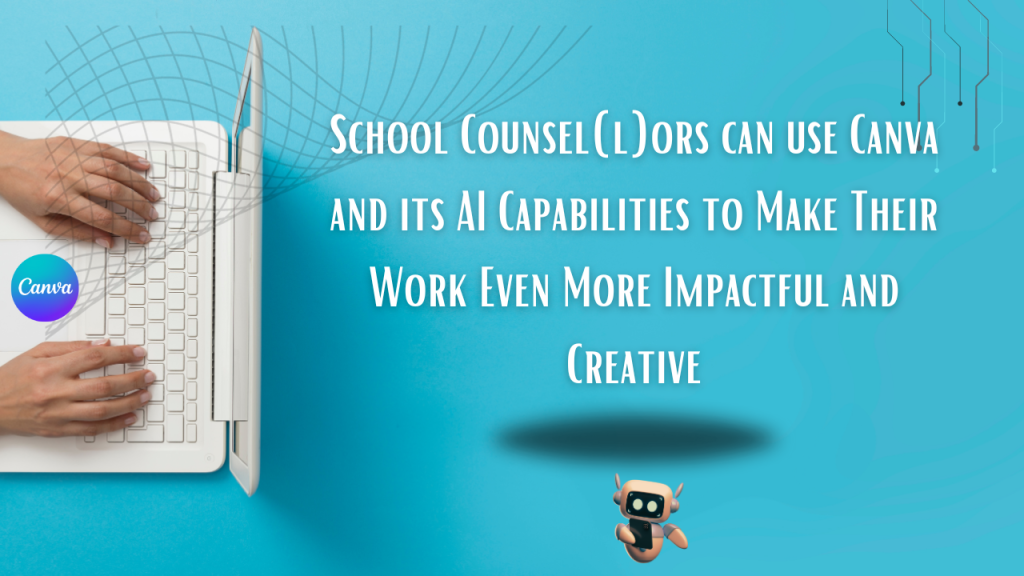
Canva, with its incredible AI features, can help you create engaging resources, infographics, and much more. Let’s explore how to use these tools in your role as a school counsellor.
Section 1: Creating Engaging Visual Content
Personalized Posters: Start with the basics – design personalized posters for your school events, workshops, and counselling sessions. Canva’s AI suggests colors, fonts, and layouts that resonate with your message.
Emotional Intelligence Infographics: Use Canva’s AI to visualize emotional intelligence concepts. It can help simplify complex topics and make them more relatable to students.
Section 2: AI-Powered Design Assistance
Layout Recommendations: Canva’s AI suggests optimal layouts for your content. It considers the psychology of design to make your materials more visually appealing and effective.
Color Harmony: Let the AI assist in choosing color palettes that convey the right emotions. For example, soothing colors for relaxation exercises or vibrant ones for motivational posters.
Section 3: Interactive Quizzes and Surveys
Interactive Content: Create quizzes or surveys for students to self-assess their well-being or mental health. Canva’s AI can even help generate questions and answer options.
Section 4: Personalized Guidance
Custom Templates: Design your own templates for school counselling materials. Canva’s AI remembers your preferences and suggests relevant templates for future use.
Section 5: Data Visualization
Visualizing Progress: Utilize AI-powered charts and graphs to track and showcase students’ progress. This can help in sharing results with teachers and parents effectively.
Section 6: Mindful Content Creation
AI-Enhanced Quotes: Canva’s AI can suggest quotes that resonate with students’ emotions. Incorporate these into your materials for an extra dose of inspiration.
Relaxation Exercise Videos: Use Canva’s AI to edit and enhance relaxation exercise videos. It can help you create a soothing and calming atmosphere.
Section 7: Collaborative Projects
Group Projects: Collaborate with students on creative projects. Canva’s AI can facilitate brainstorming and design suggestions for group initiatives.
Canva’s AI capabilities open up a world of creative possibilities for school counsellors like you. It can help you connect with students in innovative ways, making counselling sessions and resources not just informative, but engaging and fun. Embrace the magic of AI and inspire your students to thrive!
Here are 20 ways school counsellors can use Canva ‘s AI tools
- AI-Curated Reading Lists: Canva’s AI can help school counsellors curate personalized reading lists for students based on their interests and needs. This can be a valuable resource to support students’ personal development and provide them with relevant content to enhance their understanding of various topics.
- AI-Enhanced Videos: Create educational and motivational videos for school counselling sessions. Canva’s AI can be used to edit and enhance video content, adding subtitles, visual effects, and animations to make the material engaging and informative.
- AI-Generated Affirmations: Generate daily affirmations with Canva’s AI. These affirmations can be used in daily routines or as part of counseling sessions to boost students’ self-esteem and promote positive thinking.
- AI-Generated Playlists: Craft music playlists with AI-generated recommendations to set the mood during counseling sessions. Music can be a powerful tool to create a calming or motivating atmosphere.
- AI-Powered Career Path Infographics: Use Canva’s AI to create infographics that visualize potential career paths for students. These infographics can include information on job prospects, required qualifications, and career development steps.
- AI-Prompted Journaling: Canva’s AI can generate journaling prompts tailored to each student’s needs and preferences. Journaling can be a therapeutic tool for self-reflection and personal growth.
- Audio Visualization: Design graphics that visually represent audio recordings of relaxation exercises, therapy sessions, or guided meditations. These visuals can enhance engagement and understanding during such activities.
- Collaborative Art Projects: Collaborate with students on creative art projects using Canva’s AI for design input. These projects can serve as a therapeutic outlet for self-expression and creativity.
- Digital Mind Maps: Create interactive mind maps to help students organize their thoughts, plan projects, or visualize complex concepts. Canva’s AI can assist in generating mind map structures.
- Emotion Wheel: Craft an interactive emotion wheel that students can use to identify and express their feelings. This can be a useful tool for emotional self-awareness and communication.
- Gamified Counseling Materials: Use Canva’s AI to create interactive and gamified counseling materials. Gamification can make counseling sessions more engaging, helping students to learn and apply coping strategies in a fun way.
- Interactive Decision Trees: Build decision-making flowcharts with AI recommendations to guide students through complex choices. This can be especially helpful when students are facing significant decisions.
- Interactive Progress Trackers: Develop visually appealing trackers for students to monitor their progress in various aspects of life, such as academic achievements, personal goals, or mental health improvements.
- Mindful Coloring Pages: Design AI-generated mindful coloring pages for students to use as a relaxation and stress-reduction tool. Coloring can promote mindfulness and stress relief.
- Motivational GIFs: Craft animated GIFs with Canva’s AI to provide quick motivational boosts during online counseling sessions. GIFs can be used to emphasize key points or convey supportive messages.
- Positive Message Banners: Create interactive banners that display positive messages. These banners can change based on student interaction, providing customized motivation and encouragement.
- Self-Care Bingo: Develop personalized self-care bingo cards with AI-generated self-care ideas. This can encourage students to engage in self-care activities and promote their well-being.
- Therapeutic Comic Strips: Create therapeutic comic strips with AI-generated dialogues and scenarios to address common issues and challenges that students might face.
- Virtual Vision Boards: Canva’s AI can help students create digital vision boards, visualizing their goals, dreams, and aspirations. These vision boards can serve as powerful tools for motivation and goal setting.
- AI-Powered Study Guides: Assist students with AI-powered study guides that adapt to their learning preferences and needs. These guides can include interactive elements, quizzes, and personalized study tips.
Each of these ideas empowers school counsellors to use Canva’s AI tools in unique ways to support students in their personal and academic growth. The possibilities are truly endless! Please feel free to share some of your ideas in the comments..
So,school counsellors, get out there and create, inspire, and make a positive impact on your school community. Continue to make a difference using Canva as a starting point. Thanks to Chat GPT and Canva for so many ideas. You can use Canva in your School Counselling Program . The possibilities are endless.
Your Mental Health Matters
As we all navigate through life, it’s crucial to remember that our mental health matters just as much as our physical health. Despite the stigma that has surrounded mental health for many years, it’s important to break these barriers and openly discuss the importance of maintaining a healthy mind. Mental health literacy is crucial for all of us. Learn more so that we do not overdiagnose. With this in mind, let’s delve into the significance of mental health.
World Mental Health Day
Every year on October 10th, we observe World Mental Health Day, a day dedicated to raising awareness about mental health issues around the globe. This day provides us with an opportunity to spread knowledge about mental health, shattering the stigmas, misconceptions, and prejudices that unfortunately still exist in many societies.
The Importance of Mental Health
Our mental health encompasses our emotional, psychological, and social well-being, impacting how we think, feel, and act. It also plays a fundamental role in how we handle stress, relate to others, and make choices. Mental health is important at every stage of life, from childhood and adolescence through adulthood. Without positive mental health, it’s difficult to fully enjoy life and deal with its challenges.
Looking After Your Mental Health
There are many ways to look after your mental health. Each day is a new opportunity to take care of your mind. Remember to stay active, even if it just 15 minutes a day to start. Eat a balanced diet as often as possible. Maintain a regular sleep schedule, and take time each day to relax and do things that you love. Reach out to friends and family, talk about your feelings, and don’t be afraid to seek professional help. If you’re struggling. School Counsellors are always there to freely help you. They are trained mental health professionals.
Remember, It’s Okay Not to Be Okay
Lastly, remember that it’s okay not to be okay all the time. Everyone has good days and bad days, and it’s perfectly normal to feel down sometimes. What’s important is to recognise these feelings, accept them, and take steps to look after your mental health. If you’re struggling, don’t hesitate to reach out for help.
Conclusion
As we commemorate World Mental Health Day on October 10th, 2023, let’s not only raise awareness about mental health issues but also take active steps to prioritize our mental health and learn mental health literacy skills. Let’s strive to create a world where mental health is no longer stigmatized, but understood, accepted, and prioritized. Let’s treat people with the same dignity we treat someone with a physical illness.
Self-Care: The Daily Guide To Personal Wellness
| Testing out the new AI Magic switch on Canva which turns something I put together into a blog post … |
In today’s fast-paced world, taking care of oneself has become a critical, but often overlooked aspect of a healthy and balanced lifestyle. Here, we present a daily guide that will aid you in carving out time for self-care.
Monday: Embrace Physical Activity
Start your week with a good dose of physical activity. Set a goal to exercise for at least 30 minutes. It doesn’t have to be an intense workout; a brisk walk, yoga, or dancing to your favorite tunes can do the trick. The idea is to get your body moving and your heart pumping.
Tuesday: Pursue Happiness
On Tuesday, make it a point to do something that brings you joy. It could be anything from painting, reading a book, or cooking your favorite dish. Engaging in activities that make you happy is an excellent way to reduce stress and improve your mood.
Wednesday: Take a Break
Midweek can sometimes be overwhelming. So, take a break from your routine. Step out of your office or classroom, even if it’s only for a few minutes. This break will refresh your mind and help you regain your focus.
Thursday: Practice Mindfulness
Mindfulness is the practice of focusing on the present moment without judgment. It’s about accepting things as they are. On Thursday, dedicate some time to practice mindfulness and positive self-talk. It will help alleviate stress and increase your mental wellbeing.
Friday: One Day at a Time
As the week ends, remember to take one day at a time. Spend time with people who uplift and inspire you. Having positive influences around you can significantly enhance your mood and overall outlook.
Saturday: Embrace Imperfection
On Saturday, remind yourself that it’s OK to make mistakes. Be gentle with yourself. Mistakes are inevitable, and they are a crucial part of growth and learning. Instead of dwelling on them, use them as stepping stones to improve and move forward.
Sunday: Rest and Recharge
Finally, round off your week with a day of rest. Take care of yourself by doing activities that rejuvenate you. It could be a hot bath, a long nap, or simply spending the day in your pajamas watching your favorite movies. Remember, rest is as important as work, so make sure you prioritize it.
Reminders and Reflections:
As you go through this journey of self-care, here are a few things to keep in mind:
- Every day, make a list of three things you are grateful for to cultivate a positive outlook.
- Remind yourself that you can handle whatever comes your way.
- Each day, set an intention or goal. It could be as simple as ‘Just for today I will…’
By incorporating these simple practices into your routine, you’ll foster a sense of wellbeing and enhance your quality of life. Remember, self-care is not a luxury, but a necessity!
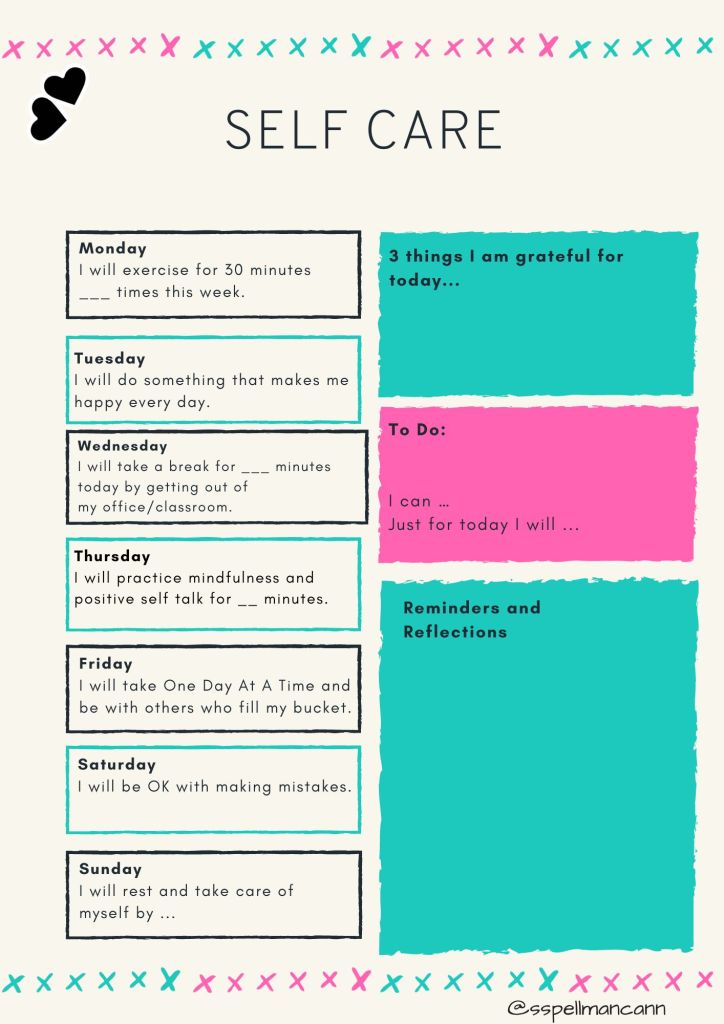
Follow me on Twitter for more self-care tips and advice
Pay Attention to The Research

Suicide in youth is one of then most serious concerns a School Counsellor will ever have to encounter. Knowing the facts are important and Dr.Tyler Black does a great job of keeping us informed.
During the pandemic, we have seen children thrive and children suffer. It is important to pay attention to the research. Keeping the best interests of youth in mind is keeping up with the research. Our youth are “not as good as we want and not as bad as we have heard.” It is so important not to pathologize normal reactions to any adverse event. How we respond to events matters now and will in the future.
How youth are impacted will continue to be an important issue counsellors must pay attention to. The individuals who you see in front of you and what you can do to help is what really matters. Knowing what the research says is very important.
Cape Breton’s Culinary Delights
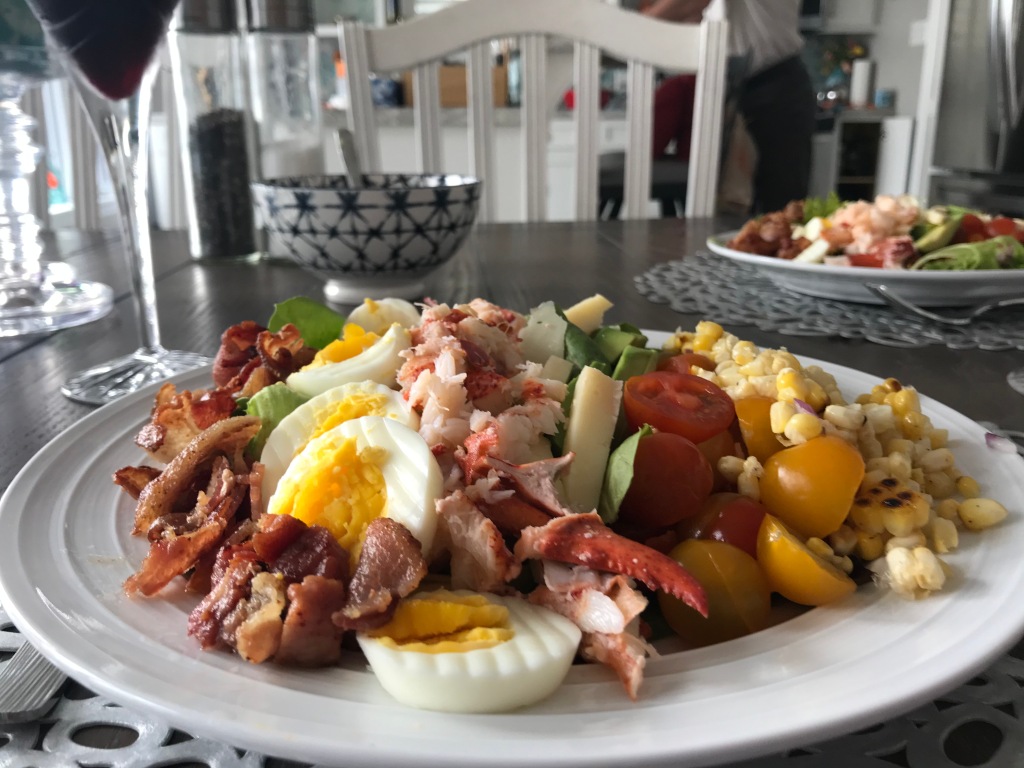
Crab cobb salad by @sspellmancann
By Helen Batherson and Susan Spellman Cann
Travelling to Cape Breton let this be your guide.
If you’re a foodie, Cape Breton has some amazing surprises in store for you. Book a table at any of the following restaurants and be prepared for a gastronomic adventure. Just bring your appetite!
Grá, is a small, but absolutely wonderful farm to table restaurant in the small community of Ross Ferry. Susan and I (Helen) have had meals there that were amazing. The Chef, Cherie Swift, has a knack for flavours and her presentation is second to none! Reservations are a good idea!
Woodroad is another spectacular, small restaurant in Margaree that showcases local cuisine. It’s built on the waterfront and has spectacular views. Cocktails at 6:30 with dinner beginning at 7:00 pm.
These two restaurants all have set fixed menus. Check with each one to find out their policies regarding alcohol.
Taking its cues from Maritime and French influences , the Bothy in Louisbourg will not disappoint. Call 902-733-2080 (the only way you will get a reservation). If you are going with a group the charcuterie board is a great start.
The Bite House is another small farm-to-table place outside Baddeck You used to be able to dine in, but can now get takeout.
Cable Room in the Telegraph House in Baddeck is a restaurant that has great ratings and can also supply wonderful meals for vegan and vegetarian diners.
The restaurant at the Chanterelle Inn, in North River, has vegetarian, non-vegetarian and seafood main courses, along with their signature home-made soups and artisan breads. Wonderful vistas overlooking the North River hills and valley. Book well ahead of your schedule.
Glenora Inn and Distillery’s gourmet restaurant is also a place not to miss! It’s located on the Inverness side of the island. Not only can you have a fabulous meal, but don’t forget the tour and tastings of the famous single-malt distillery.
If you are travelling to Ingonish, be sure to have a meal at the Purple Thistle Dining Room in the Keltic Lodge. Wonderful seafood dishes are included on the menu, which also has a wide range of items to choose from. And you get to dine while looking at the ocean and the Highlands!
If you are in a VRBO don’t hesitate to get a fine meal of crab. We both prefer it over lobster,
These are some of the gastronomic delights to be found on the Island. In addition, there are so many bistros and cafés to be enjoyed in almost every village and town. No matter your food tastes and interests, you will find a place to accommodate you! Watch for an update as we begin to compile a new list of those ‘must try’ places!
